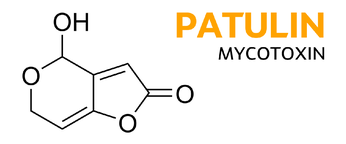Combating Apple Tree Cancer and Mycotoxins: Faculty of Science UHK and VŠÚO Holovousy Launch Research Project with Support from TA CR

A newly introduced project focused on researching protective measures against a serious disease affecting apple trees and the mycotoxins associated with it has received backing from the Technology Agency of the Czech Republic. The initiative promises benefits for both scientific research and practical horticulture.
The Faculty of Science at the University of Hradec Králové, in collaboration with the Research and Breeding Institute of Pomology Holovousy Ltd., has been successful in the second public competition of the SIGMA DC2 program, under the TQ - Program for the Support of Applied Research and Innovation SIGMA, funded by the Technology Agency of the Czech Republic. The project titled "Verification of the effectiveness of integrated protection systems against Neonectria ditissima with an overlap on the impact of this protection on the content of the mycotoxin patulin in fruits of infected trees in the conditions of the Czech Republic" offers new possibilities for scientific research and practical solutions in the field of pomology and food safety.
The main goal of the project is to deepen knowledge about the pathogen Neonectria ditissima, which causes apple tree cancer – a severe and economically significant disease. The project focuses on researching protective measures that could reduce the occurrence of this pathogen, thereby limiting the contamination of harvested fruits with patulin, a substance toxic to humans.

Within the project, experimental plantings will be conducted to map the occurrence of the pathogen, isolate pure cultures, and subsequently test the effectiveness of various fungicidal substances under greenhouse conditions. The data from these trials will be used to evaluate the effectiveness of the protective measures and their impact on reducing the content of mycotoxins in the fruits.
The outcomes of this project could significantly contribute to improving methods of protecting apple trees from diseases and enhancing food safety due to the reduced risk of mycotoxin contamination.
Additionally, the project provides a significant platform for applied research and practical education for students, who have the opportunity to engage in scientific activities and contribute to solving current problems.

